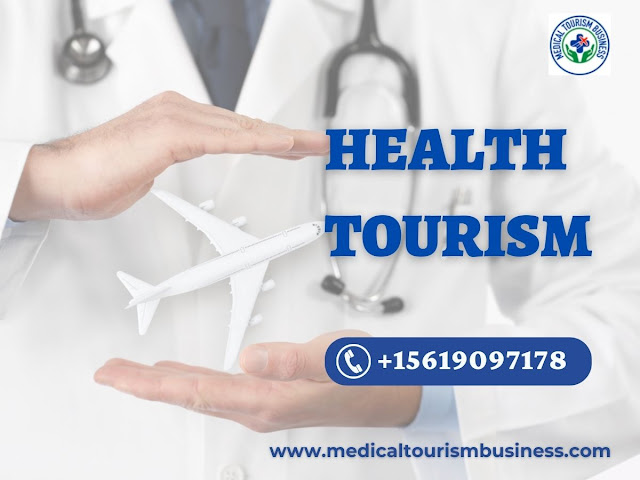How to Launch a Thriving Medical Tourism Agency: Your Complete Certification Roadmap
The Medical Travel Industry is growing fast—and so is the demand for qualified facilitators who can bridge the gap between patients and international healthcare providers. But starting a successful medical tourism startup takes more than a website and a few clinic contacts.
You need credibility. You need systems. And most of all, you need to understand how to operate professionally in a high-stakes, cross-border business.
Here’s a full breakdown of how to get certified, what it actually means to be a Medical Tourism Specialist, and why partnering with an experienced medical tourism consultant can save you time, money, and mistakes.
Step 1: Understand What Medical Tourism Facilitators Actually Do
Before getting certified, understand the core responsibilities of the job. A medical tourism facilitator is not just a travel agent or a middleman. You are the central coordinator of the patient’s entire journey.
That includes:
Finding trusted hospitals or clinics in other countries.
Communicating between the patient and the doctor, including helping with records, treatment plans, and pre-op questions.
Coordinating travel logistics—visas, flights, hotels, recovery stays, and sometimes even a companion’s travel.
Ensuring patient safety and follow-up care, including post-treatment checkups or remote monitoring.
Managing risks and expectations, especially if complications arise.
This role requires specialized knowledge. That’s where certification comes in.
Step 2: Choose the Right Certification Program
If you want hospitals and patients to take you seriously, you need official training.
A strong Medical Tourism Specialist certification will teach you:
How healthcare systems vary across countries and what to watch for.
Legal and ethical concerns in cross-border care (like informed consent, medical malpractice risks, and liability).
Best practices for patient care coordination, from the first inquiry to post-treatment recovery.
Marketing and business development—because you’re not just helping patients, you’re building a business.
Look for programs recognized within the medical travel industry, ideally with instructors who’ve run real-world operations. You want to learn from people who’ve actually built agencies or worked in international healthcare.
Step 3: Work With a Medical Tourism Consultant Who Knows the Game
This is the step most people skip—and regret later.
A medical tourism consultant doesn’t work with patients. They work with you, the facilitator, to help you launch, grow, and scale your medical tourism startup the right way.
They help with:
Startup planning: Picking the right services, specialties, and target markets.
Business structure: Contracts, liability waivers, patient agreements, and partner MOUs.
Hospital partnerships: How to approach and negotiate with providers.
Marketing strategy: How to attract real clients, not just likes and followers.
Avoiding legal pitfalls: Especially in countries with strict healthcare regulations.
If you’re new to the industry, this is like having a mentor and strategist rolled into one. It can save you months (even years) of trial and error.
Step 4: Build Your Business Infrastructure
Once you’re certified and working with a consultant, you need to get your operations in order. This means building a real business, not just offering services ad hoc.
What you need:
A professional website that clearly explains your services, includes contact forms, and builds trust with potential patients.
Client management systems (CRMs) to keep track of leads, patient documents, appointment schedules, and partner communications.
Legal documents, like patient intake forms, informed consent agreements, and travel disclaimers.
Trusted hospital and clinic partnerships—with written agreements, not just verbal promises.
A brand that communicates professionalism, empathy, and safety.
You’re not just selling a trip. You’re selling peace of mind.
Step 5: Start Small, Then Scale Smart
It’s tempting to offer everything to everyone—but that’s a fast way to get overwhelmed and fail.
Instead:
Pick a niche. Start with one or two specialties, like dental care, cosmetic surgery, IVF, or orthopedic treatments.
Focus on one or two destination countries where you can build strong hospital partnerships and understand the system well.
Deliver excellent service. Your first few clients will build your reputation—don’t cut corners.
Once your foundation is solid, you can expand your services, offer premium packages, or add wellness tourism options. But don’t rush it.
In this business, your reputation is everything. One bad case can kill your growth. One successful case can bring five more clients.
Final Thoughts: Don’t DIY Your Medical Tourism Startup
Starting a medical tourism agency without proper certification or expert support is a gamble—not just for you, but for the patients who trust you.
If you're serious about becoming a Medical Tourism Specialist, invest in a recognized training program. Then, find a medical tourism consultant who can walk you through the business-building process. That combination—certification plus strategic guidance—is the fastest, safest way to create a successful, sustainable agency in the medical travel industry.Watch More Video:
https://youtu.be/DvF_cSNXjo0?si=arfdb6-TeiFD0SVR
https://youtu.be/4yESaXOom5A?si=zhoeuXoXQ-F1G6Ti
https://youtu.be/YEWZfK9CVW4?si=ssRqn7sCDjA8JVwz
https://youtu.be/AHnqkjEJ_BE?si=V5OKmF9ZwIkt1gaD
Follow me for more info:
https://www.facebook.com/MedicalTourismBusiness
https://www.youtube.com/@medicaltourismbusiness
https://www.linkedin.com/in/medicaltourismbusiness
https://www.instagram.com/gilliamelliottjr/




Comments
Post a Comment